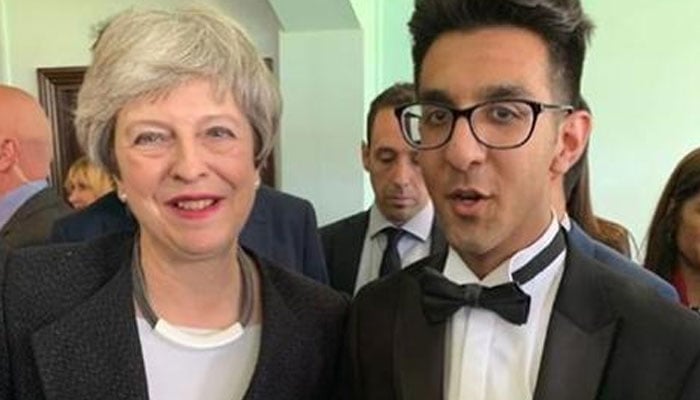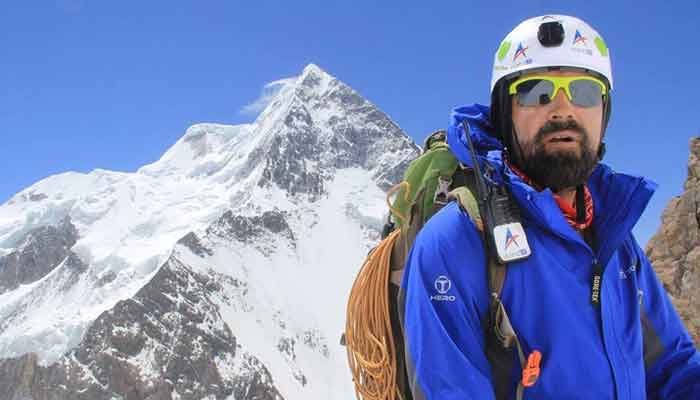ghazi52
PDF THINK TANK: ANALYST

- Joined
- Mar 21, 2007
- Messages
- 104,348
- Reaction score
- 106
- Country
- Location
May 4, 2019
Hannan Sarwar becomes first youngest Pakistani councilor in UK

Teenager Hannan Amir Sarwar has made history to become the first and youngest British Pakistani who got elected as a councilor from the Wilmslow Town council, Manchester in Britain’s local councils’ elections.
The teenage politician was one of four candidates who got elected unopposed to Wilmslow Town Council for the town’s east ward.
Hannan’s family belongs to Faisalabad, Pakistan. He is from Styal and turned 18 in February this year.
He joined the Conservative Party a year ago.
Hannan met Prime Minister Theresa May on Thursday – the day when Britain held local councils’ elections. He was invited to a Conservative Association reception as one of the country’s youngest elected town councillors.
“British Prime Minister Theresa May congratulated me after I have won the Local Councils’ election on ticket of the Conservative Party,” 18-year-old Hannan told Geo News. “The PM asked me to expedite the political activities.”
I was invited to meet her in the party’s reception, he told.
The newly elected councilor said the entire community will have to play its due role to do away with Islamophobia and hate crimes in Britain. “Ethnic minorities groups, particularly British Pakistanis, should stand up and share their feelings with others,” he remarked.
It’s high time we got ourselves heard, he said.
Young politician also said his role model is founder of Pakistan, Quaid-e-Azam Muhammed Ali Jinnah. “I have taken inspiration from a lot of people, including Imran Khan, Quaid-e-Azam, UK politicians, and young Pakistani parliamentarians,” he pointed out. They are my role models, he said.
Hannan is a student of A-levels at St Ambrose College at Hale Barns. As a member of the Young Enterprise Greater Manchester Local Volunteer Board, he holds regular events for local charities.
The teenage councilor said he joined the Conservative Party just over a year ago. Afterward, I was asked to contest the local elections, he told. I applied and went for an interview, he said. “I was unanimously selected to contest in the local elections,” he told.
Hannan Sarwar becomes first youngest Pakistani councilor in UK

Teenager Hannan Amir Sarwar has made history to become the first and youngest British Pakistani who got elected as a councilor from the Wilmslow Town council, Manchester in Britain’s local councils’ elections.
The teenage politician was one of four candidates who got elected unopposed to Wilmslow Town Council for the town’s east ward.
Hannan’s family belongs to Faisalabad, Pakistan. He is from Styal and turned 18 in February this year.
He joined the Conservative Party a year ago.
Hannan met Prime Minister Theresa May on Thursday – the day when Britain held local councils’ elections. He was invited to a Conservative Association reception as one of the country’s youngest elected town councillors.
“British Prime Minister Theresa May congratulated me after I have won the Local Councils’ election on ticket of the Conservative Party,” 18-year-old Hannan told Geo News. “The PM asked me to expedite the political activities.”
I was invited to meet her in the party’s reception, he told.
The newly elected councilor said the entire community will have to play its due role to do away with Islamophobia and hate crimes in Britain. “Ethnic minorities groups, particularly British Pakistanis, should stand up and share their feelings with others,” he remarked.
It’s high time we got ourselves heard, he said.
Young politician also said his role model is founder of Pakistan, Quaid-e-Azam Muhammed Ali Jinnah. “I have taken inspiration from a lot of people, including Imran Khan, Quaid-e-Azam, UK politicians, and young Pakistani parliamentarians,” he pointed out. They are my role models, he said.
Hannan is a student of A-levels at St Ambrose College at Hale Barns. As a member of the Young Enterprise Greater Manchester Local Volunteer Board, he holds regular events for local charities.
The teenage councilor said he joined the Conservative Party just over a year ago. Afterward, I was asked to contest the local elections, he told. I applied and went for an interview, he said. “I was unanimously selected to contest in the local elections,” he told.












